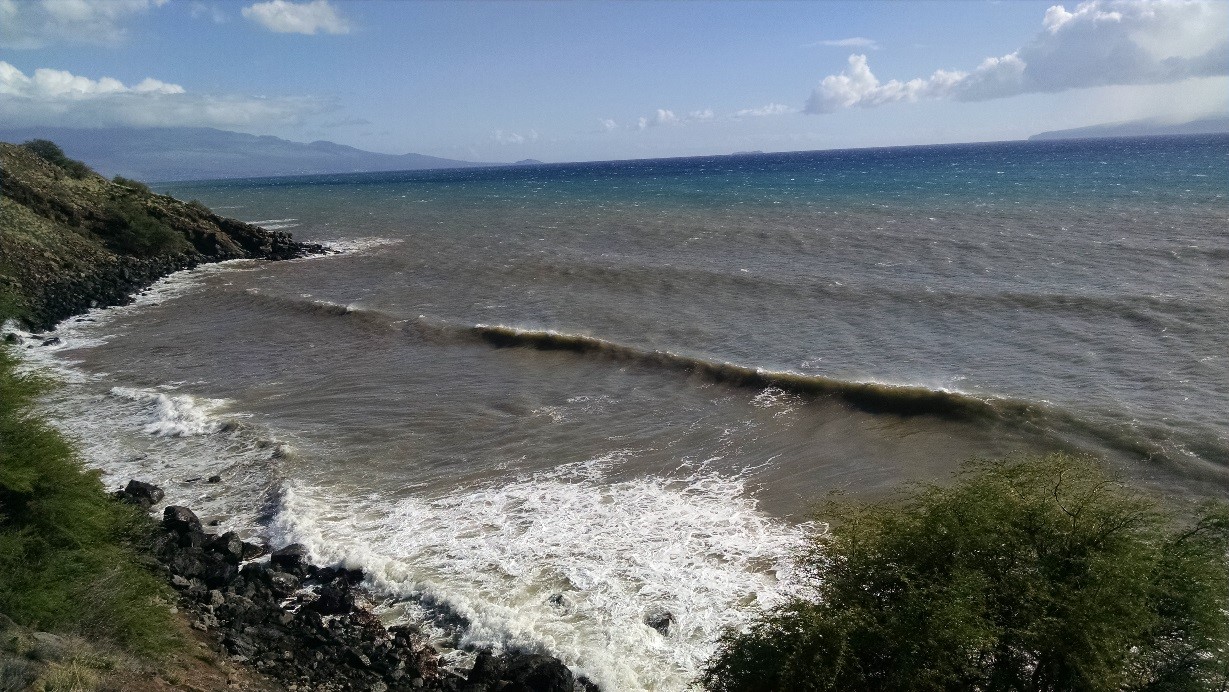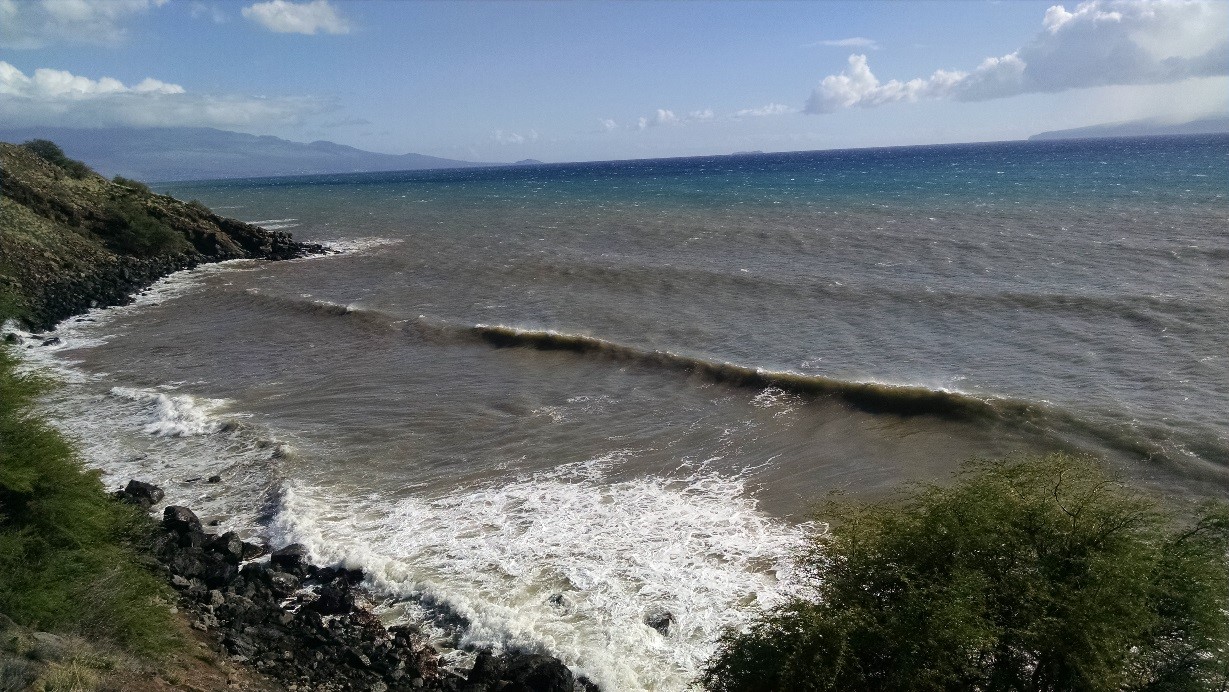Soggy Christmas Eve storms make for high surf and cloudy snorkeling
 Severe storms with heavy rains in the week leading up to Christmas led to power outages, downed trees, and flash flooding throughout Maui. In West Maui, ocean waters were cloudy for several days following the storms, and while surf was big, few surfers wanted to venture into the murky waters. Murky ocean conditions are generally caused by an excess of stormwater flowing down from the mountains, and bringing sediment, and other pollutants with it. We recently published an introductory guide to LID systems for hotel and resort property owners and managers to help address this issue—you can find it for download online. Low Impact Design (LID) can help prevent flooding on land and murky conditions in the sea by filtering stormwater before it reaches the ocean. LID refers to landscape designs that slow, filter, and sink stormwater into the ground where it is naturally filtered by plants and soil and can recharge groundwater.
Severe storms with heavy rains in the week leading up to Christmas led to power outages, downed trees, and flash flooding throughout Maui. In West Maui, ocean waters were cloudy for several days following the storms, and while surf was big, few surfers wanted to venture into the murky waters. Murky ocean conditions are generally caused by an excess of stormwater flowing down from the mountains, and bringing sediment, and other pollutants with it. We recently published an introductory guide to LID systems for hotel and resort property owners and managers to help address this issue—you can find it for download online. Low Impact Design (LID) can help prevent flooding on land and murky conditions in the sea by filtering stormwater before it reaches the ocean. LID refers to landscape designs that slow, filter, and sink stormwater into the ground where it is naturally filtered by plants and soil and can recharge groundwater.
Rain gardens are probably the most well-known type of LID system. Instead of flowing down a storm drain or into the ocean, stormwater from roofs or parking lots is channeled into the garden where plants remove pollutants and sink the water safely into the ground. An example of a rain garden can be seen at Wahikuli Wayside Park complete with an interpretive sign explaining its function in reducing stormwater runoff. For anyone wanting to build their own rain garden in Maui, see this manual published by Hui o Koʻolaupoko. Other examples of LID systems found in the CORAL LID guide include:
- Bioswales–large-scale rain gardens that are well suited for areas adjacent to parking lots
- Pervious pavement–paving options that allow stormwater to pass through them instead of running off
- Green rooftops–rooftop gardens that capture and filter rainwater as well as reducing heating and cooling costs
- Constructed Wetlands–ponds or water features that add beauty, collect, filter, and store stormwater
- Rainwater harvesting–methods to store rainwater for future use such as irrigation
CORAL recently published an introductory guide to LID systems for hotel and resort property owners and managers entitled:
Print copies of the LID guide are available by contacting Wes Crile at wcrile@coral.org or 808 359-3689. Wes is also available if you would like technical advice or assistance assessing your property’s potential for implementing an LID system. The more LID we have in West Maui, the more we can keep our ocean waters crystal clear for guests and residents alike!
